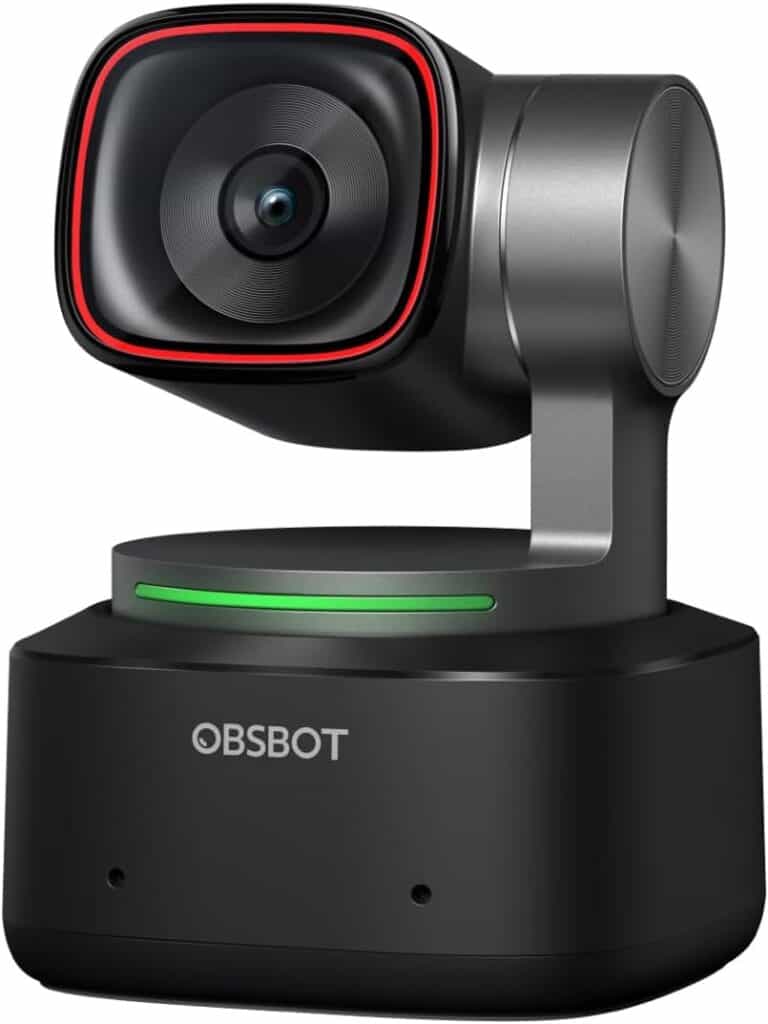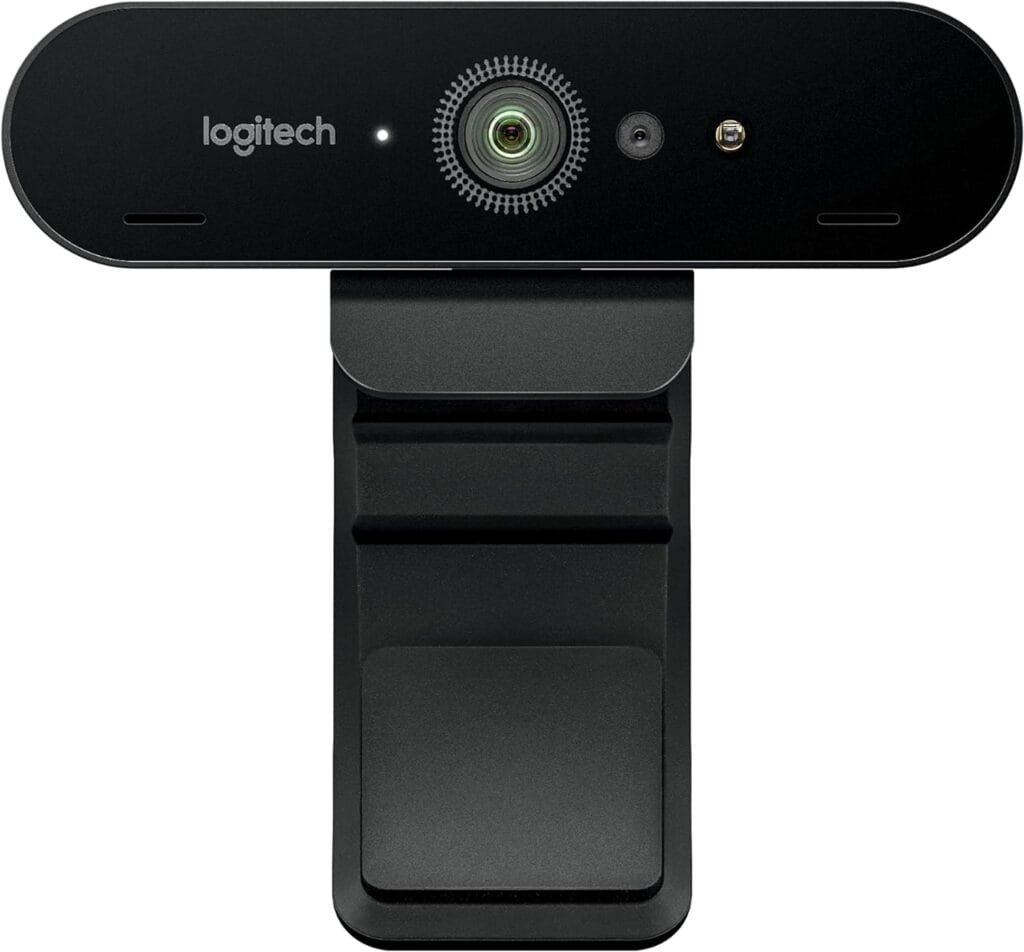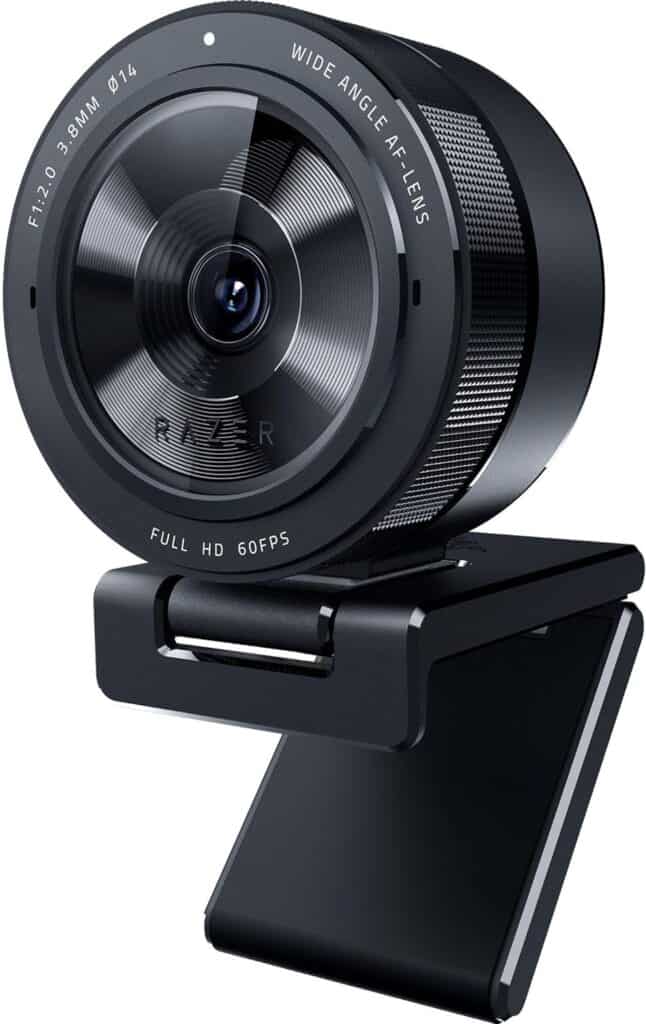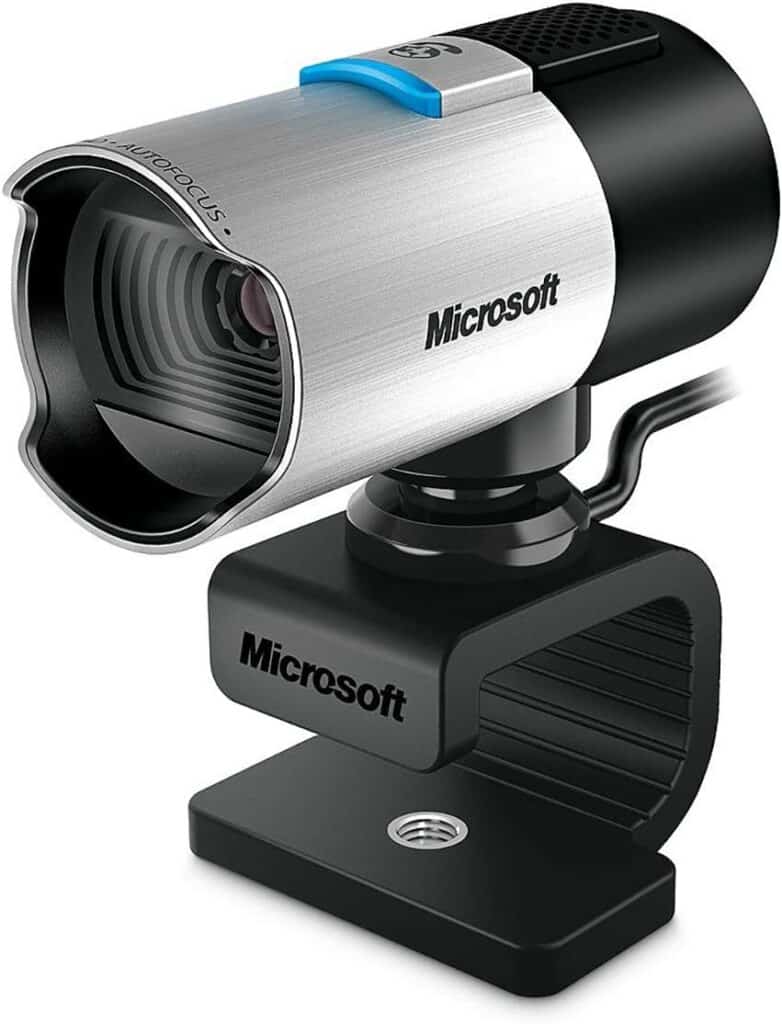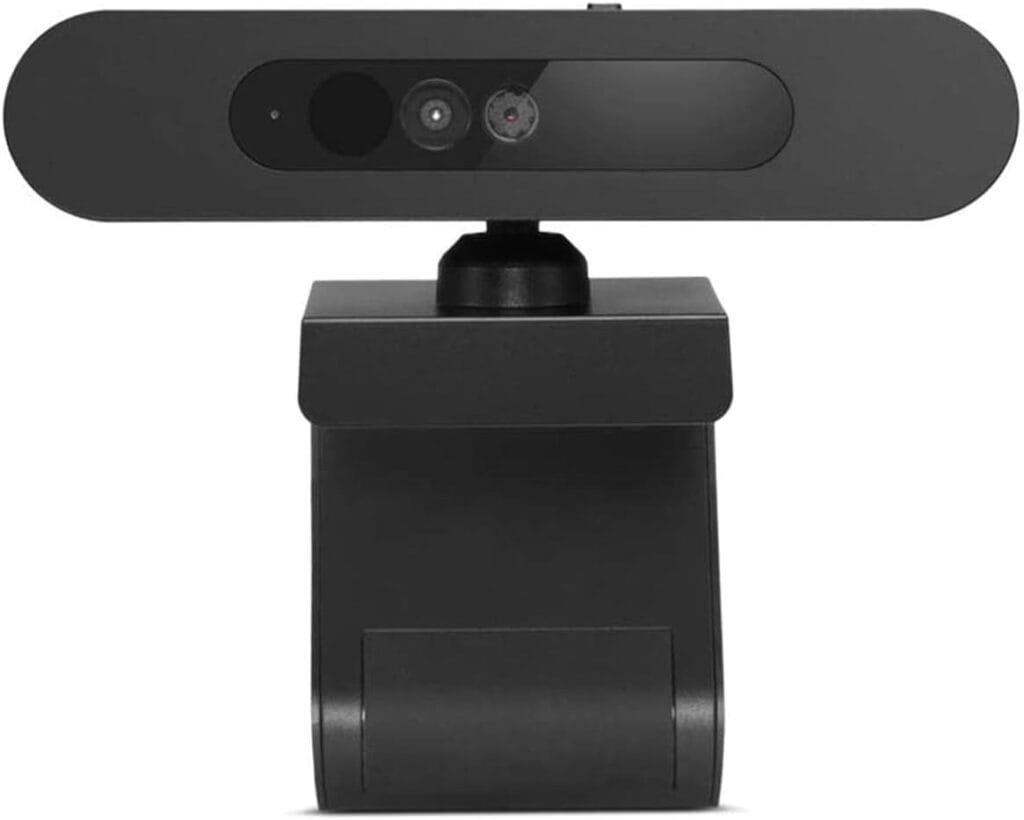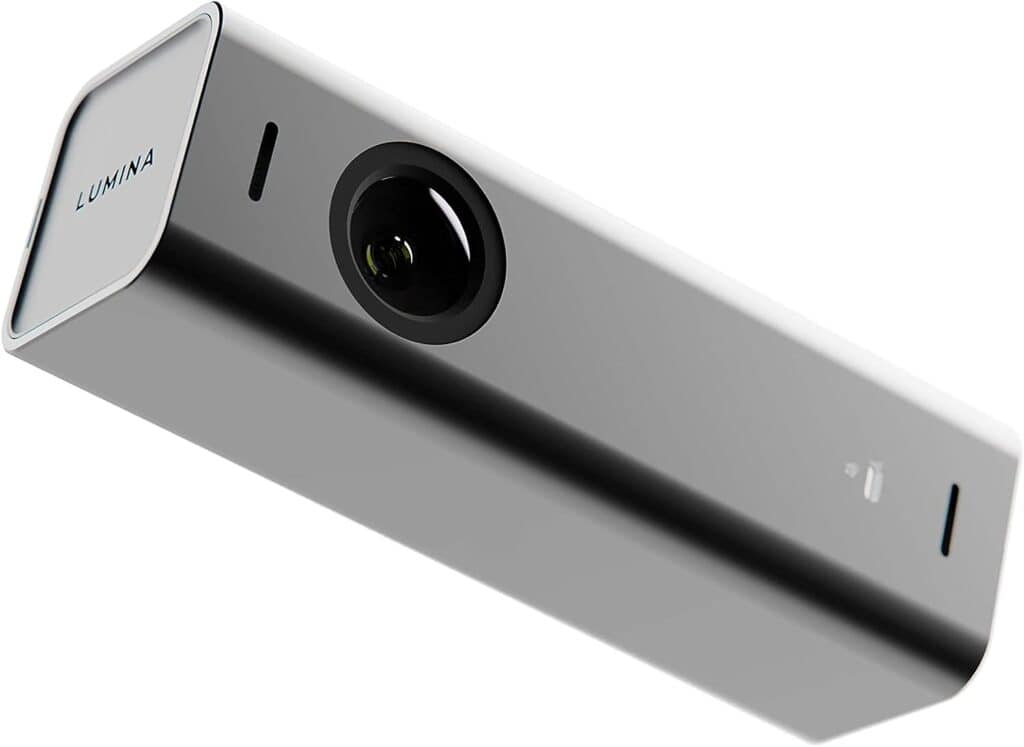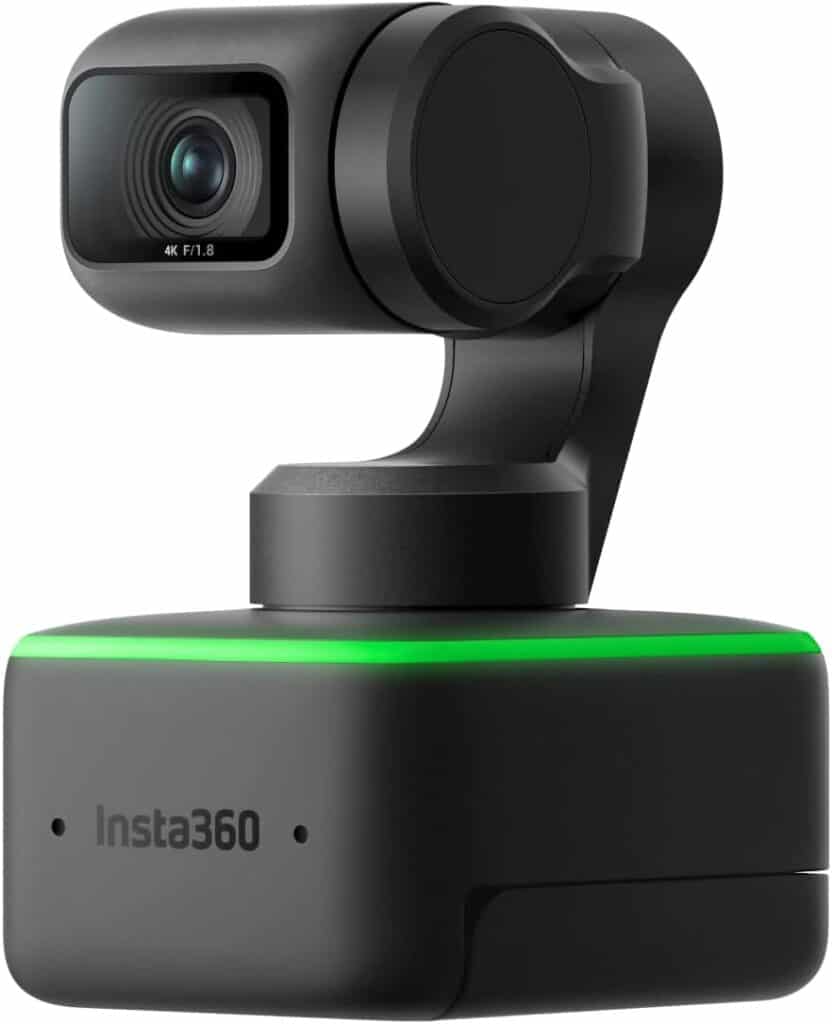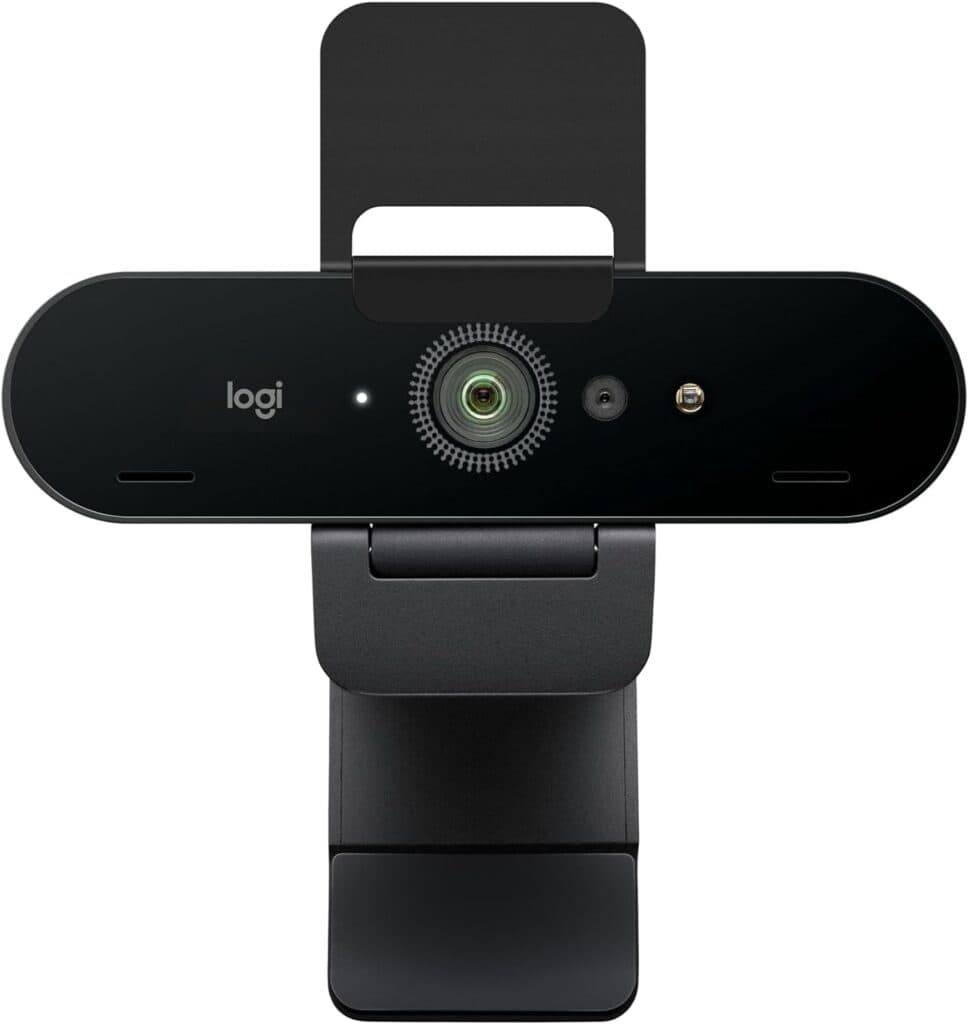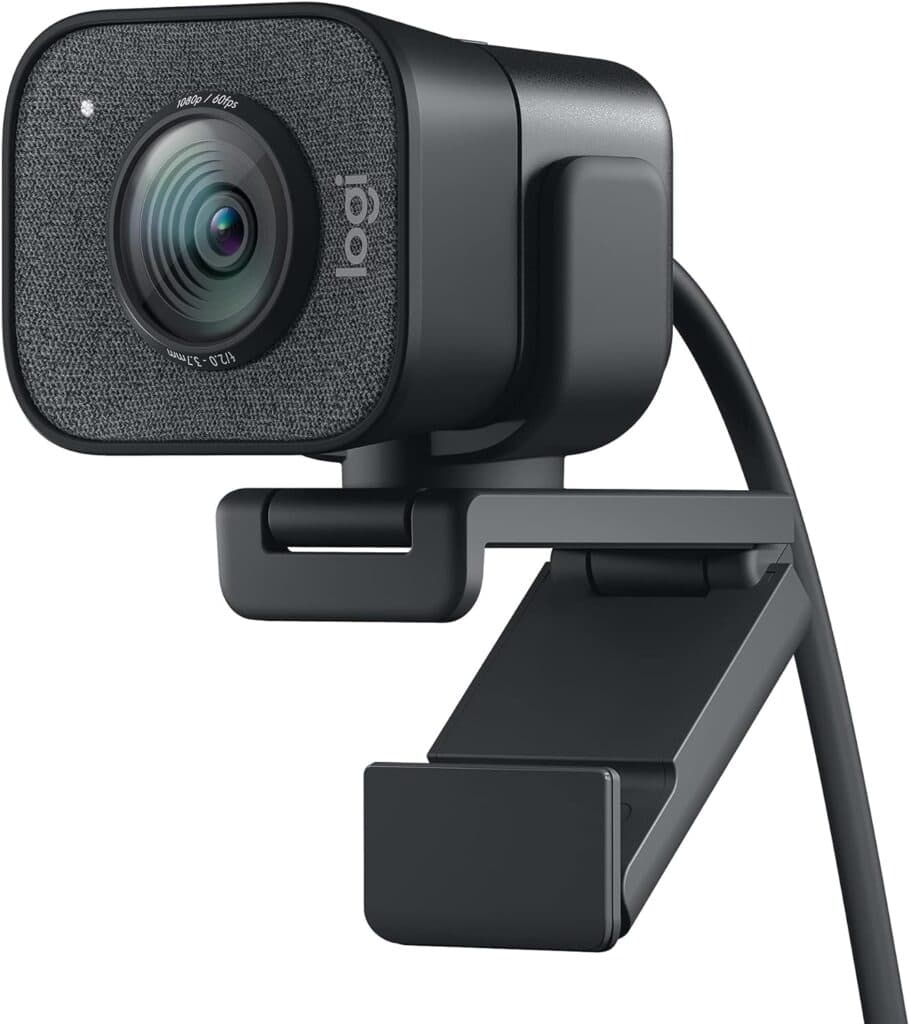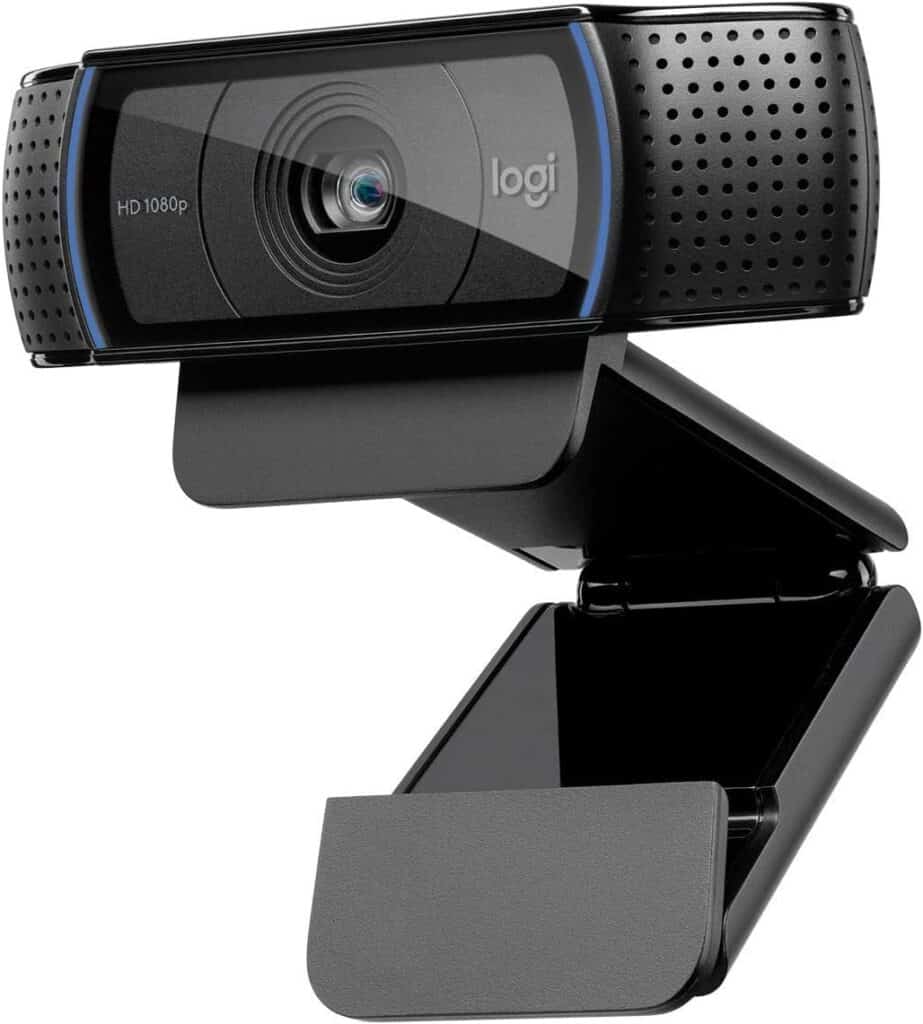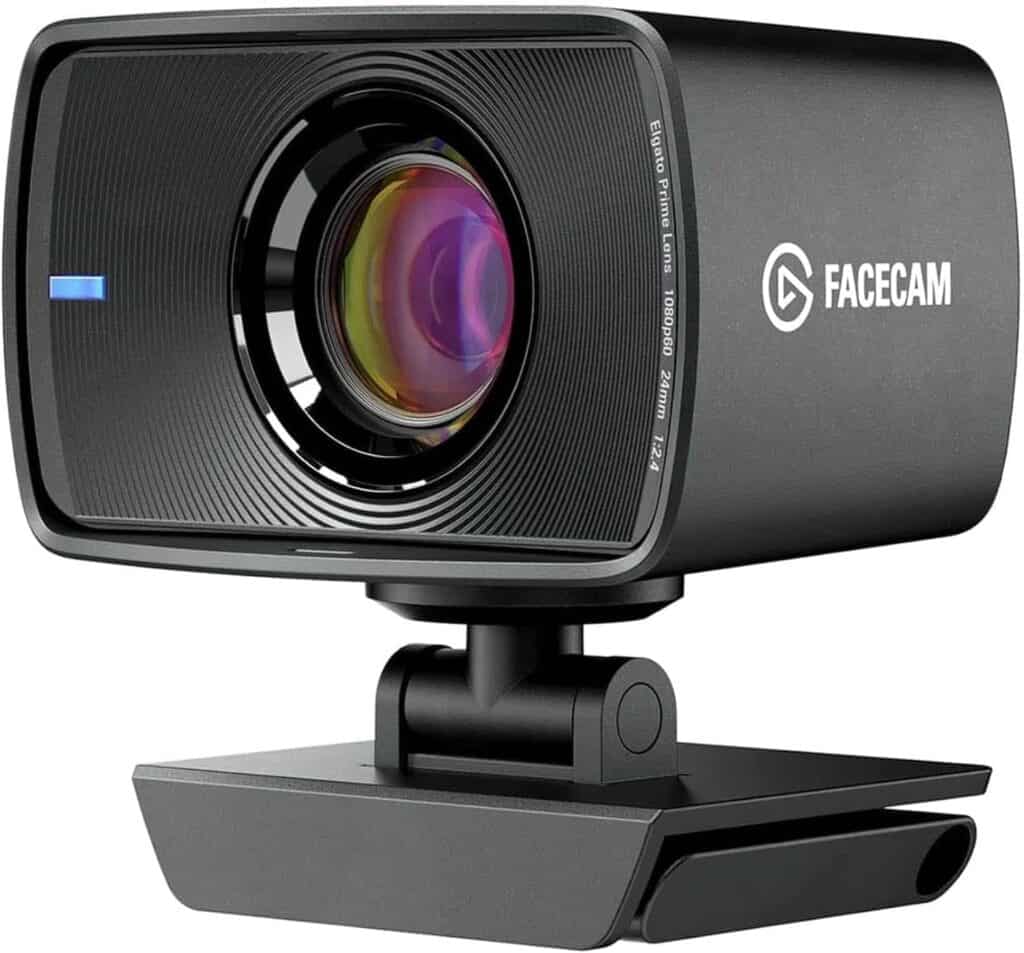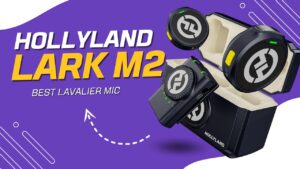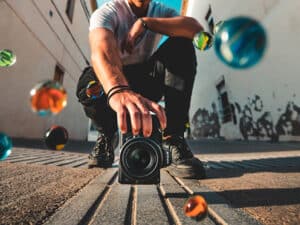If you want to create great video content, you need a good webcam for YouTube. The built-in camera on your laptop is usually insufficient to capture quality video. DSLR cameras are the best option, but they are prohibitively expensive for some people. In many cases, an external webcam is the right choice.
In this article, we explore the best webcams for YouTube. We also explain their benefits, what makes a great webcam, and what settings you should use to capture the best video.
Action
Creating video content for YouTube? Expand your reach with Castos’ automatic YouTube republishing feature, distributing your podcast content across all major platforms simultaneously. Start your 14-day free trial
Castos is a participant in the Amazon Services LLC Associates Program. We may earn commissions from your purchases on Amazon.com, though at no cost to you.
What is the Best Webcam for YouTube?
Here’s a look at the top 11 webcams that cater to various needs and budgets. Whether you prioritize image quality, versatility, or price, these webcam options can elevate your content.
1. OBSBOT Tiny 2
The OBSBOT Tiny 2 is a compact powerhouse with super smart features. It boasts AI tracking and auto-framing, which is great to keep you in focus if you move around a lot. With gesture control, you can command the camera without interrupting your flow. The 4K resolution and HDR support ensure that your video quality is sharp and vibrant.
Tip
Not sure what to buy for your content creation? Check out our big guide on podcast and video equipment recommendations. It tells you everything you need to know.
2. Logitech 4K Pro
The Logitech 4K Pro is one of the most popular webcams for YouTube due to its stellar image quality and color accuracy. It offers 4K resolution so you’re always crystal clear. With RightLight 3 and HDR technology, it adjusts to your lighting environment. The webcam also features a 5x digital zoom, giving you flexibility in framing your shots.
3. Razer Kiyo Pro
The Razer Kiyo Pro stands out with its adaptive light sensor, making it ideal for creators who film in varying lighting conditions. It delivers high-definition 1080p resolution at 60 fps, offering smooth and detailed video. The webcam’s wide-angle lens and advanced autofocus feature keep you in focus, whether up close or at a distance.
4. Microsoft LifeCam Studio
Designed for professional use, the Microsoft LifeCam Studio offers a 1080p HD widescreen sensor. Its TrueColor technology with face tracking optimizes exposure for vibrant, natural colors. The high-fidelity microphone provides crystal-clear audio. This webcam for YouTube is a solid choice for creators focusing on both video and audio quality.
5. Lenovo 500 FHD
The Lenovo 500 FHD is a budget-friendly option that doesn’t compromise on quality. It delivers 1080p resolution and comes with a 75-degree lens that captures a wide field of view. The webcam includes a physical privacy shutter and built-in dual microphones, ensuring both security and clear audio capture.
6. Lumina 4K Web Cam
Lumina redefines webcam aesthetics and functionality with its AI-powered auto-framing and color correction. It adapts to your skin tone and lighting conditions, providing a professional and flattering image. Supporting up to 4K resolution, Lumina offers a premium video experience, especially for creators who value image quality and customization.
7. Insta360 Link
The Insta360 Link is a game-changer with its 3-axis gimbal design. This creates unparalleled flexibility and stabilization. It supports 4K resolution and AI-powered tracking features. Its gesture controls and portrait mode are ideal for creators looking for innovative and interactive video capabilities.
8. Logitech BRIO
The Logitech BRIO is renowned for its superb 4K Ultra HD video quality, delivering clarity and detail that’s hard to beat. It features advanced technologies like RightLight 3 and HDR, which adapt to any lighting situation. With its wide field of view and digital zoom, the Logitech BRIO is versatile for all types of content.
9. Logitech StreamCam
Specifically designed for streaming setups, the Logitech StreamCam supports 1080p resolution at 60 fps, offering fluid and excellent video quality. Its auto-framing and intelligent exposure ensure you’re always the star of the show. The StreamCam also features vertical video support, making it perfect for creators targeting mobile viewers.
10. Logitech C920
A classic choice among YouTubers, the Logitech C920 offers reliable performance with 1080p HD video and dual stereo microphones for clear audio. Its automatic light correction and autofocus keep you looking crisp. The C920 delivers consistent quality and ease of use, which is why it’s a staple for content creators.
11. Elgato Facecam
Designed with streamers in mind, the Elgato Facecam delivers high-quality video without compression. Its 1080p resolution at 60 fps ensures smooth and sharp footage. The camera’s prime lens and advanced image processing keep the focus crisp and the colors true. If you value customization, the Facecam’s software lets you fine-tune settings to achieve the perfect look.
Benefits of Using an External Camera for YouTube
The quality of your videos plays a crucial role in attracting and retaining viewers. While built-in laptop cameras or smartphones can be convenient, investing in a webcam for YouTube offers numerous advantages that can significantly enhance your video production quality.
Here are some key benefits of using a webcam for YouTube content creation:
1. Superior Video Quality
Webcams for YouTube are designed to deliver higher resolution and better image quality compared to standard built-in webcams or smartphones. With options ranging from full HD to 4K, these cameras ensure that your videos are crisp, clear, and professional-looking, which makes your content more appealing to viewers. You simply can’t find this kind of performance in a standard webcam.
2. Advanced Lighting Adjustment
External webcams often come equipped with advanced lighting technologies, such as HDR (High Dynamic Range) and RightLight, which automatically adjust to your environment to provide the best lighting. This means even in less-than-ideal lighting conditions, your videos will look bright and vibrant, keeping your audience engaged.
3. Enhanced Audio Quality
While the primary focus of a webcam is video, many come with built-in microphones that offer superior audio quality compared to built-in laptop or desktop microphones. Clear sound quality is essential for maintaining viewer engagement and ensuring your message is conveyed clearly.
That said, whether you’re podcasting or filming YouTube content, we always recommend using a professional microphone rather than a built-in mic. Check out our list of the best microphones for some good picks.
4. Greater Field of View and Flexibility
Webcams for YouTube provide a wider field of view and more framing options, allowing you to capture not just yourself but also your surroundings if needed. This flexibility is essential for creators who want to showcase more than just a talking head, including demonstrations, tutorials, or physical products.
5. Autofocus and Auto-framing Features
With autofocus, Webcams for YouTube keep you sharply in focus, even if you move around. Some advanced models feature auto-framing or tracking, which automatically adjusts the frame to keep you centered. This makes your videos look more dynamic and engaging.
6. Customization and Control
External webcams often come with software that allows you to customize settings like exposure, color balance, and field of view. This level of control enables creators to fine-tune their video’s appearance, aligning with their brand or the mood they want to convey.
7. Professionalism and Credibility
Using an external camera can elevate the perceived quality of your channel, lending a more professional and credible look to your content. This can be particularly beneficial for educational, review, or business-related channels, where conveying expertise and authority is crucial.
What Makes a Good YouTube Webcam?
Choosing the right webcam for YouTube content creation goes beyond just picking a camera with the highest resolution, though you don’t need to focus on expensive webcams. Here’s what to consider when selecting a good YouTube webcam.
1. Resolution
Resolution is pivotal as it determines the clarity and detail of your high quality videos. A webcam that offers at least 1080p is essential for professional-looking content, while 4K resolution provides even greater detail. Higher resolution is beneficial for creators who want the best video quality or plan to crop their footage in post-production.
2. Autofocus
A webcam with reliable autofocus ensures that you remain sharp and clear in the video, even if you move around. It adjusts the focus automatically, so you don’t have to pause your content to fiddle with the settings.
3. Field of View
The field of view (FoV) determines how much of your surroundings the camera captures. A wider FoV is excellent for showing more of your environment, ideal for demonstrations or when you have multiple people in the video.
4. Frame Rate
Frame rate, measured in frames per second (fps), affects the smoothness of your video. A minimum of 30 fps is necessary for clear, non-jittery video, but 60 fps is preferable for those seeking a more fluid and lifelike video quality.
5. Low-Light Performance
Good low-light performance is crucial if you’re not always filming in well-lit environments. Webcams with larger sensors and advanced processing capabilities can produce clearer images in low-light conditions.
6. Lens Quality
The lens quality can significantly impact the overall video quality. Glass lenses generally offer better clarity and color accuracy than plastic lenses. A high-quality lens helps avoid distortions and ensures your videos have a professional look.
7. Microphone
While an external microphone is usually recommended for the best audio quality, having a good built-in microphone can be a great backup or suitable for creators just starting out. Look for webcams with noise-canceling microphones to minimize background noise.
8. Mounting Options
Your webcam should be versatile in how it can be mounted or placed. A good webcam offers multiple mounting options, whether it’s clipping securely onto a monitor, standing on a desk, or attaching to a tripod, providing flexibility in how you set up your filming space.
9. Budget-Friendliness
Finally, consider your budget. While it’s essential to invest in quality, there are excellent webcams available across a range of price points. Determine your must-have features versus nice-to-haves and find a camera that offers the best balance of quality and cost for your needs. You can find a great webcam even if you’re on a tight budget (though be wary of cheap webcams).
Best Settings to Use on a Webcam
In order to ensure that your videos look professional and appealing, it’s important to optimize your webcams for YouTube, especially if you have advanced features.
While individual webcams may offer different features and customization options, here are some general guidelines to help you set up your webcam for the best possible output.
Resolution and Frame Rate
Set your webcam to its highest resolution for the best image quality. For most content, 1080p is sufficient, but if your webcam supports 4K and your video recording setup can handle it, use it to future-proof your content.
Choose a frame rate of at least 30 fps for smooth video playback. If your webcam and recording software support higher frame rates, like 60 fps, use it to achieve even smoother motion, especially beneficial for dynamic or action-oriented content.
Focus and Exposure
Enable autofocus if your webcam has it (though some budget webcams don’t), ensuring you remain sharp throughout your recording. However, if autofocus is too reactive or distracting, consider setting a fixed focus point.
Adjust the exposure so that your video isn’t too bright or too dark. Automatic exposure is helpful, but manual focus adjustment might be necessary in mixed or challenging lighting conditions.
White Balance and Color Correction
Correct white balance is crucial for natural-looking skin tones and colors. Auto white balance usually works well, but in mixed lighting, you might need to adjust it manually to avoid color casts. If your webcam for YouTube has color correction settings, adjust them to ensure that your video has a natural, balanced look.
Field of View and Framing
Adjust the field of view to suit your content. A wider field is good for showing more of your environment, while a narrower field helps focus on you, the presenter (like in the case of a mobile video or video call).
Proper framing is essential. Ensure you’re centered and that there’s not too much headroom. Follow the rule of thirds for a more aesthetically pleasing composition if your webcam software allows for such adjustments.
Audio Settings
If your webcam has a built-in microphone and you’re using it, check the audio settings. Opt for noise reduction if available and adjust the microphone volume to ensure you’re heard clearly without distortion.
Advanced Settings and Effects
Some webcams offer advanced features like background replacement, HDR, or digital zoom. Use these judiciously, as overuse can sometimes detract from video quality. Ensure any digital enhancements enhance rather than diminish your content’s authenticity and clarity.
Lighting Adjustments
While not a direct webcam setting, adjusting your studio lighting can significantly impact your webcam’s performance. Ensure you’re well-lit from the front, preferably with soft, diffused lighting to reduce shadows and highlight your features clearly.
Software Updates and Testing
Keep your webcam’s software and drivers updated to ensure you have access to the latest features and fixes. Regularly test your settings before recording significant content to ensure everything looks and sounds as it should. Updating your software also protects you from cybersecurity vulnerabilities like identity theft, ransomware and other attacks.
Your Favorite Webcams for YouTube
We’ve given you our list of the best webcams for YouTube, but you may have some suggestions on your own. Comment below with your favorite webcams (and additional features you think are important) and we may add them to our list.
Still looking for a great camera? Check out some more of our reviews:
- Canon EOS M50 Mark II Review
- Canon EOS 90D Review
- Everything You Need for a Video Podcast Setup
- The Best Cameras for Podcasting
Featured image: ITU Pictures/Flickr (cc)
